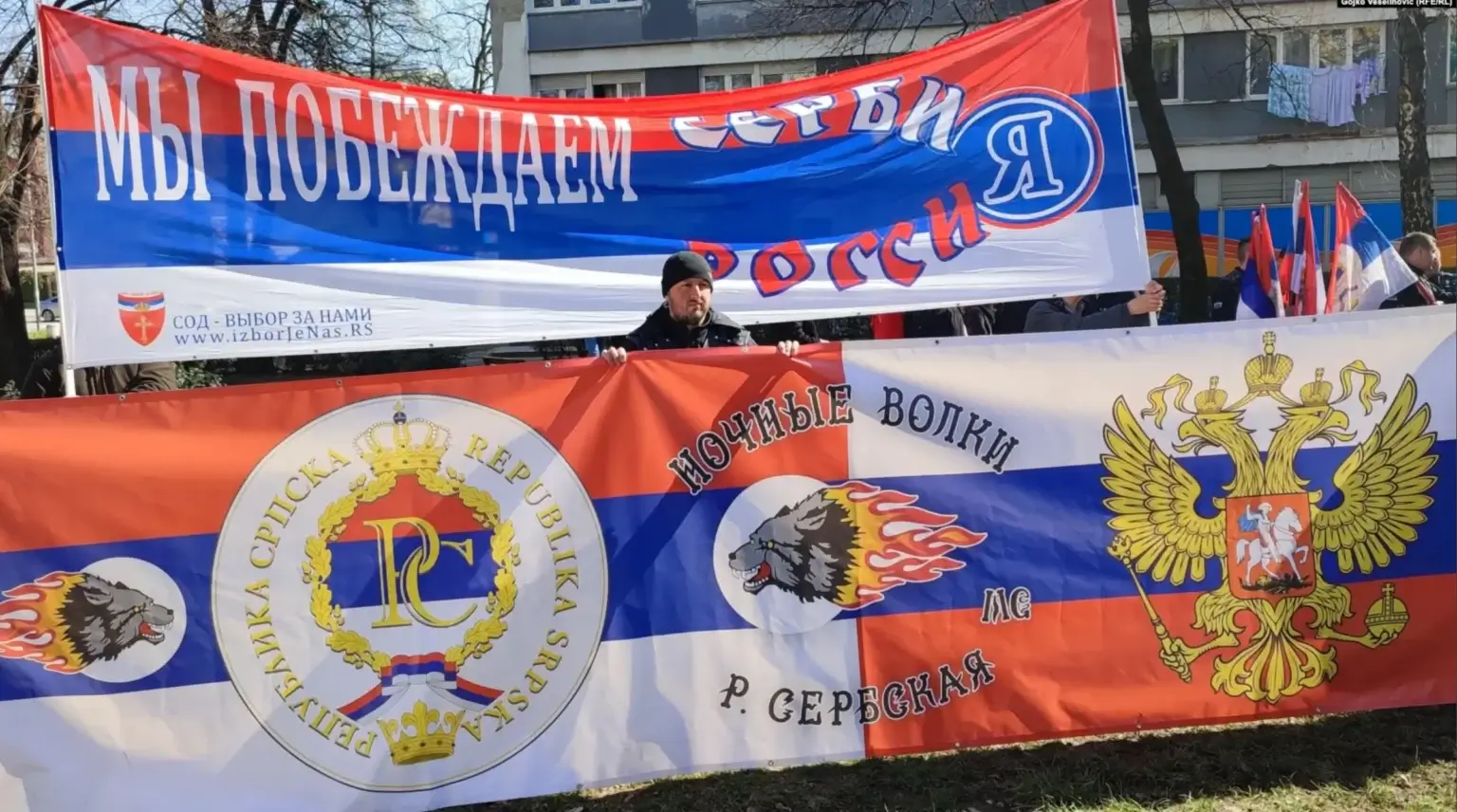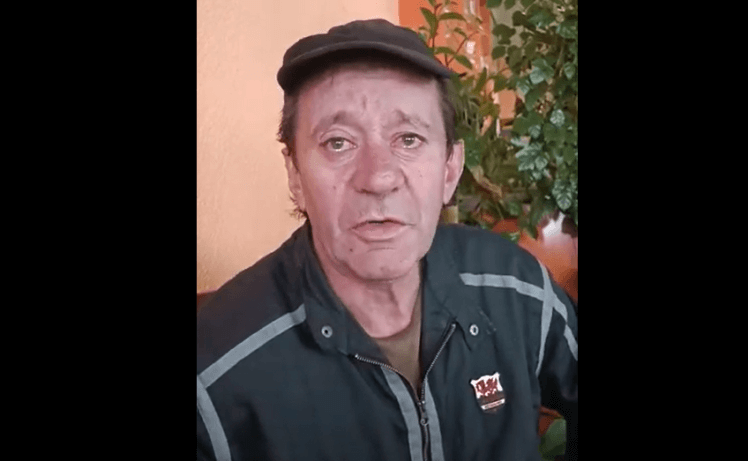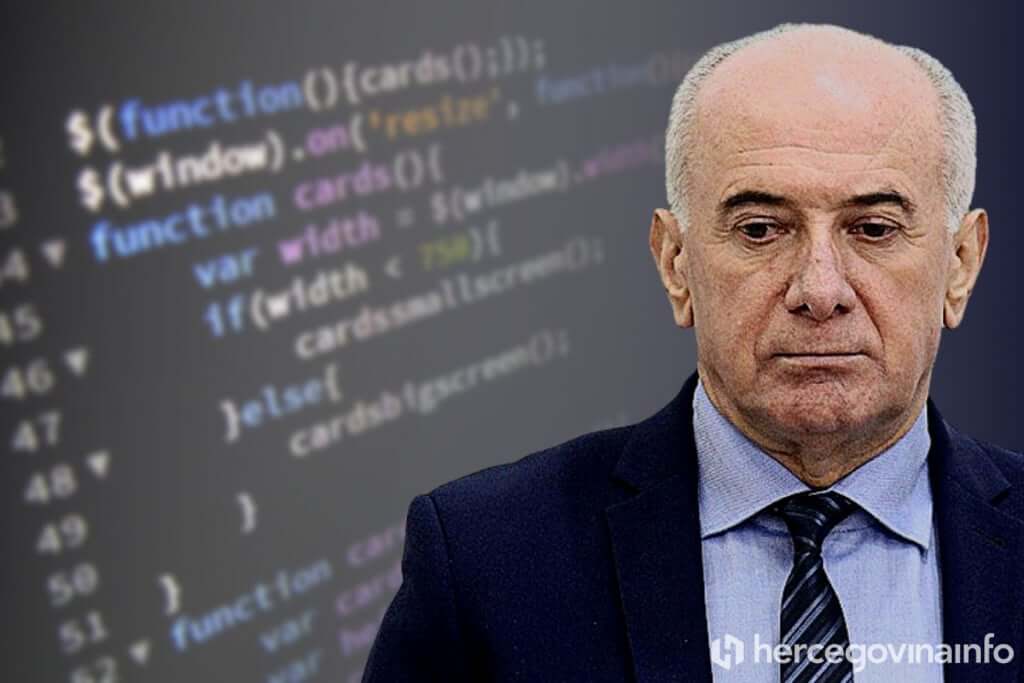Do you really think that in addition to the current structure of government in Republika Srpska, Russia needs another lever of power? There is no need, Nedeljko Elek, director of Sarajevo-gas Istočno Sarajevo, said recently.
Russia needs disorder and instability in BiH and the Western Balkan region. This is one of the ways for the states of the region to block the way to the NATO alliance or the liberal democratic world, which keeps the Alliance away from Russia’s borders.
Clear messages
Official Moscow has been sending messages through its ambassadors in the region for a long time that it is Russia’s vital interest that BiH does not join NATO.
This is why Russia supports anti-Dayton policies that strengthen instability in Bosnia and Herzegovina. Everyone participates in this game – operative radical groups, intelligence services, alleged humanitarians, the media… And the consequences are numerous internal problems in Bosnia and Herzegovina.
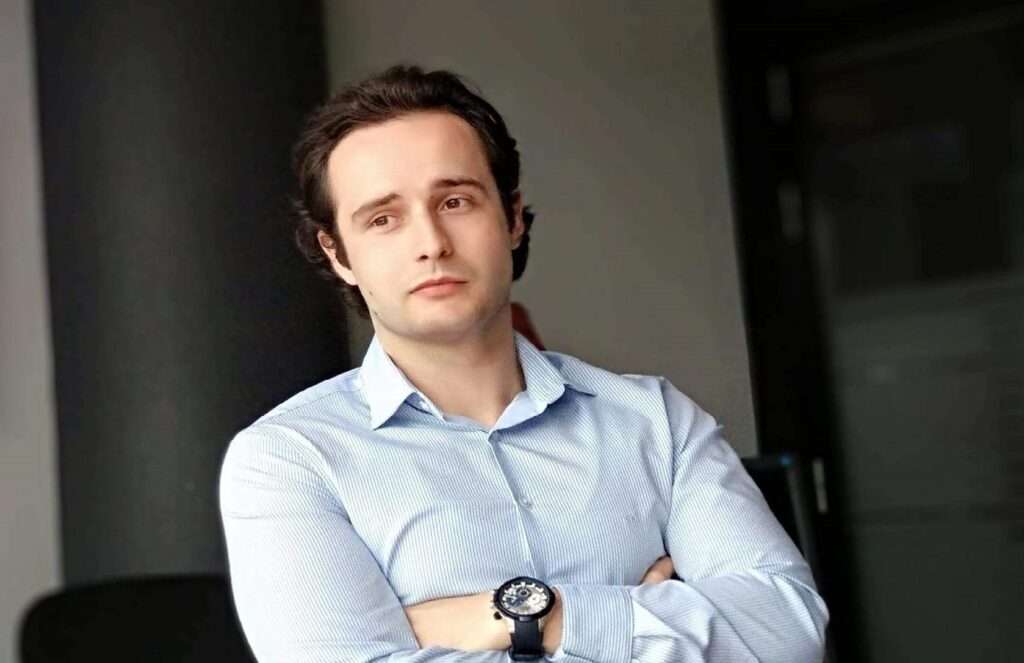
Cero: Russia’s influence after the last elections in Bosnia and Herzegovina could even grow stronger
– Through political influence in Bosnia and Herzegovina, Russia is trying to create the (im)possibility of sovereign decision-making in state institutions regarding the speed of its Euro-Atlantic route, energy sovereignty and control over its resources, reforms in the field of the rule of law, and the like. That is, to block everything that leads Bosnia and Herzegovina towards a functional liberal democracy. This is done through the ruling policies in RS. But, so far at least, even the partners of the position from the RS in the Federation of BiH have not contributed to the reduction of Russian influence. On the contrary, they showed a lack of will to make any substantial progress when it comes to reforms related to the rule of law – explains political scientist Harun Cero.
Channels of influence
According to him, it is already possible to distinguish several channels of influence.
– Political-diplomatic influence is channelled through the ruling political structures in Republika Srpska and Serbia. It then flows into BiH institutions. The economic and security influence in BiH is reflected through the activities of informal groups. There are Wagner, Night Wolves (Noćni vukovi), and members of certain humanitarian organizations. There is also a cultural and educational influence, the spread of which is the responsibility of the Serbian Orthodox Church, and organizations such as the Russian Humanitarian Mission or the Art, Science and Sports Fund. All the way to local associations in the RS – says Cero.
He warns that Russian influence, after the 2022 elections, which strengthened the position of those who spread destructive influence and implement destructive policies, could continue and even increase.
– We have also seen inter-ethnic riots in neighbouring countries, which were caused by Russian intelligence. But, fortunately, they had no major consequences. But I must warn that it would be catastrophic if the scenes that we could see in the past in North Macedonia, Montenegro or Kosovo happened in Bosnia and Herzegovina – Cero warns.
Dayton, USA and EU
Majda Ruge, a former advisor in the Delegation of the European Commission to Bosnia and Herzegovina and the OSCE Mission to Bosnia and Herzegovina, claims that Russia achieves its goals in Bosnia and Herzegovina through support for local Ethno-nationalist representatives. She is now at the European Council on Foreign Relations.
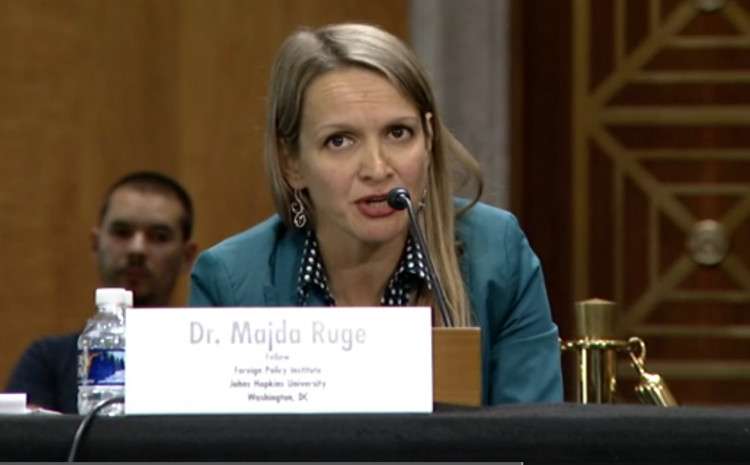
Ruge: Another channel of Russian political influence is opposition to EU and US policy
She stated in the author’s text, published in September 2022, that Russian support is directed towards those representatives who use the mechanisms from the Dayton Constitution to veto decisions that are unfavourable to Russia. For example, it is about decisions such as BiH’s entry into NATO. Or they oppose the EU and SDA policies in multinational forums such as the UN Security Council or the Peace Implementation Council (PIC).
– Milorad Dodik repeatedly used the veto to prevent the BiH Presidency from reaching a consensus on the resolutions of the UN General Assembly. These are resolutions calling on Russia to withdraw its military forces from Crimea and to end the occupation of Ukrainian territory. Recently, the chairman of the BiH Council of Ministers, a member of Dodik’s SNSD, refused to implement the decisions of the BiH embassy in Brussels on joining EU sanctions against Russia. The nationalist HDZ BiH and its leader Dragan Čović also supports Russian interests. Despite the fact that HDZ formally supports BiH’s entry into NATO. It is important for Russia that HDZ BiH opposes the constitutional changes necessary to simplify the voting procedures and enable BiH to progress towards joining the EU and NATO – And Čović and the majority of HDZ BiH delegates in the House of Peoples of BiH voted against aligning BiH with EU sanctions against Russia. Together with delegates from Republika Srpska. Another channel of Russian political influence is opposition to EU and US policy – writes Ruge.
What are the ultimate goals?
She reminds that between 2017 and 2022, Russia opposed numerous decisions and conclusions that were of essential importance for Bosnia and Herzegovina. Among other things, Russia was against the declaration of the PIC that Republika Srpska has no right to secede. Russia also questioned the legitimacy of the judgments of the Tribunal in The Hague. Then objected to PIC’s statements about support for the Constitutional Court of BiH and its judges. Russia recently boycotted the PIC in defiance of the decision to support the appointment of Christian Schmidt as the High Representative in Bosnia and Herzegovina.
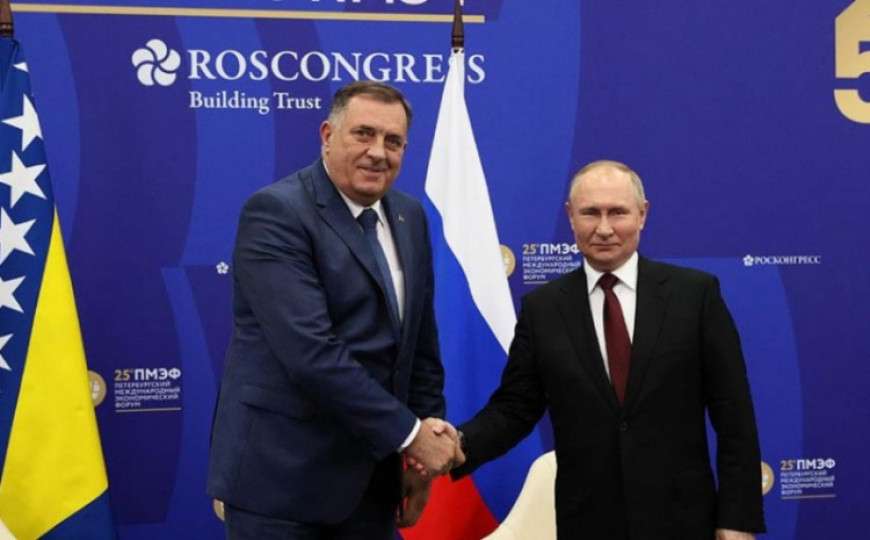
Russian Foreign Minister Lavrov and HDZ BiH leader Čović
– Russia’s ultimate goals are the closure of the OHR and the departure of all Western officials from BiH institutions, such as the three European judges of the Constitutional Court of BiH… Dodik did most of the work by gradually destroying the checks and balances of his government, following the same scenario since he took office in 2006. He is threatening secession in order to get concessions from the USA and the EU, because international and domestic restrictions on his activities have weakened – says Ruge.
Same tactic
She insists that Russia and Dodik aim to use the same tactics to remove all remaining Western surveillance from the country. This, she points out, includes the Office of the High Representative and three international judges of the Constitutional Court, both institutions that can counter his attacks on the Dayton Agreement.
– If Dodik achieves this goal, the current constitutional system, which is already burdened with the possibility of procedural blockages, poor financial management and abuse of position, will probably never be reformed. This would be an ideal scenario for Russia – In that case, BiH would still not be able to lead an independent foreign policy, neither with regard to NATO nor with regard to the Russian occupation of parts of Ukraine. Domestically, this would allow Dodik or political like-minded people to eliminate the few remaining institutions, which have maintained a certain degree of independence from the ruling political parties. This refers to the Constitutional Court, the Central Election Commission and the High Judicial and Prosecutorial Council – warns Ruge in her text.
Dodik’s countless meetings with Russian President Putin Director of the International Institute for Middle Eastern and Balkan Studies (IFIMES) from Ljubljana, Zijad Bećirović, believes that Milorad Dodik is Bosnia and Herzegovina’s Kadyrov. He thinks that Dodik is ready and that he is fighting for Russian interests. And RS is the Russian base in RS. But they are not the only players…
Dodik is BiH Kadyrov
– The goals are known – to break Bosnia and Herzegovina and enable statehood for the RS. The Russian military and diplomatic intelligence services are attacking BiH. And in all spheres, they are consolidating their influence in RS. Russia is now preoccupied with aggression against Ukraine. Putin is saving himself and his empire. BiH is on hold. The Putinists in the region are waiting for a signal. One of them is Dragan Čović. Croatia is playing a game with the West. The game between Zoran Milanović and Andrej Plenković, as if one is for the Russians and the other for the West, when in fact Russian money and gas represent life for Croatia. Russia controls Croatia financially. Čović implements a dual Croatian policy in BiH, a little for the West, a little more for Russia with Dodik. The two will never give up on the division of Bosnia and Herzegovina – explains Bećirović.
And he adds that Dodik’s countless meetings with Russian President Putin and Foreign Minister Lavrov are proof of that.
Military base in RS?
A year ago, IFIMES published an analysis according to which Russia uses Dodik in order to establish the basis of future activities in Bosnia and Herzegovina. And he does it hurriedly, knowing that if Dodik was eliminated by the EU and the USA, they would be stopped for a certain period of time.
– The Russian humanitarian centre from Niš in Serbia was moved to Republika Srpska. Russia got its military representation within the Ministry of Defense of Serbia. Infrastructure construction projects started in Republika Srpska for Russia’s needs are intensifying. There are several infrastructure projects, which resemble or could serve as the basis for the formation of a Russian military base in the RS in the future. The Russian Orthodox Church (RPC) is establishing its infrastructure in a number of locations. In many segments, this structure resembles a military one. The work is directly managed by the Russian ambassador to Bosnia and Herzegovina, Igor Kalabuhov – it was stated in the analysis.
The opinion that the arrival of the new SPC patriarch Porfiri has increased the influence of the Russian Orthodox Church was also highlighted. That is why the travels of Patriarch Porfiri on the territory of the independent and sovereign state of Bosnia and Herzegovina are connected with the activities of the Russian Orthodox Church. But also with the activities that Dodik is carrying out to break BiH.
– Russia has been using Dodik for a long time to establish an intelligence structure independent of Serbia. The presence of Russian intelligence agents in Republika Srpska has been recorded and monitored. Their task is to prepare the ground for the separation of Republika Srpska from Bosnia and Herzegovina. The apparatus that was established is also focused on dedicated production in the Federation of Bosnia and Herzegovina, that is, on researching whether the Federation of Bosnia and Herzegovina has hidden military reserves in the event of a conflict. The only unknown for Russia is the behaviour of NATO. The Dayton constitution allows NATO to intervene. It is unknown to Russia what NATO’s reaction would be in the first moment of the attempted secession of Republika Srpska – this analysis states.
Dedicated production
Bećirović believes that the intelligence services have done their job and are now only controlling. He points out that it might be expedient for law enforcement agencies and/or NATO to go public with information about the presence of Russian intelligence in Bosnia and Herzegovina. To disclose the details of the meetings with Dodik, the activities of the Russian Orthodox Church in Bosnia and Herzegovina, and Russian intelligence penetrations in the FBiH regarding dedicated production. Especially with data on underground facilities that are being built in RS in cooperation with Russian intelligence structures.
And Ruge warns that Russia, even while it is stuck in the war in Ukraine, could try to destabilize countries in the neighbourhood of the European Union.
Fragile peace in Bosnia and Herzegovina
She believes that the war in Ukraine has given European policymakers a new understanding of how fragile peace in Bosnia and Herzegovina is.
– A few weeks after Russia launched an all-out invasion of Ukraine, Igor Kalabukhov, the Russian ambassador to Bosnia and Herzegovina, said that Ukraine shows what can be expected. He seemed to warn that if Bosnia and Herzegovina sought to form a membership with NATO, Russia would attack the country. At the same time, local media reported the claims of the Russian embassy that Dodik has a private agreement with President Vladimir Putin on how to proceed in Bosnia – writes Ruge.
Doctor of legal sciences Ivana Stradner from the American Enterprise Institute in Washington warns of vulnerable institutions in Bosnia and Herzegovina. And that, due to the reduced engagement of the EU and America, countries like Russia, Turkey, Iran, and China have entered the political arena and are polarizing society.
– The destabilizing factor in Bosnia and Herzegovina is not only Russia. You have a problem with Turkish interest. Well, we should also talk about that with Iran. Russia is only a current destabilizer, whose actions we see. She has different interests in the Western Balkans. It depends on the country. In general, strong, stable and prosperous Balkans do not suit Russia – Stradner pointed out recently in an interview for TV N1.
She emphasized that Milorad Dodik is not the only one working in the interest of Russia.
Divide and conquer
Dragan Čović said last year that there is little Russian influence in Bosnia and Herzegovina.
– BiH’s big problem is that it is polarized. And in that type of polarization, each of the foreign actors wants to use it in a divide-and-conquer manner. They do that very successfully – said Stradner.
She assessed that Dodik serves Russia as a pawn for the promotion of interests, but that does not mean that he is a victim, as leaders in the Balkans often like to call themselves.
In an interview with Radio Free Europe at the end of the year, Stradner warned that Russia is strengthening its influence in the Balkans. Russia has recently opened its propaganda machinery such as RT (Russia Today), it has opened Sputnik which is working, and there is a Wagner Center which is open.
– All this contributes to a new intensity of the hybrid war in the Balkans. Whether it will be a serious conflict or not, I cannot say at this moment. But I can say with certainty that this is the continuation of a serious information war and a hybrid war that serves to destabilize the rest of Europe – Stradner told RSE.
The West limits space
Cero warns that Russia believes that the West is limiting its sphere of influence in the Balkans, Central Asia, and Africa, and I don’t think that will change soon.
– Russian intelligence work in Bosnia and Herzegovina is versatile. A few members of the GRU and informal groups were banned from entering, while it was documented that a large number of them managed to enter BiH. One of the examples of the work of intelligence workers is the financing of politicians close to them in the region in order to have as successful campaigns as possible, and this also happened in Bosnia and Herzegovina. Also cyber, in other words, hacker attacks on the systems of countries that are institutionally more developed and robust than BiH – let’s just remember the attack on the IT system of the German Bundestag in 2015, and precisely because of this it is crucial, I would say vital, that BiH makes strong progress in the coming period in the field of cyber security – says Cero.
What to do in BiH?
In March of last year, the Secretary General of NATO put BiH on the same level as Georgia and Moldova in the context of possible conflicts caused by Russian interference. And at the end of November 2022, the NATO alliance made a decision to increase aid to BiH for the same reasons precisely because of Russian influence.

At the end of November 2022, the NATO alliance made a decision to increase aid to BiH precisely because of Russian influence
At the Madrid Summit, the Allies agreed to step up political and practical support for other partners at risk of Russian malign influence, including Bosnia and Herzegovina. We are ready to strengthen our support for Bosnia and Herzegovina in various ways. For example, by helping to modernize its defence and security structures, they said.
– We could also improve our cooperation in the fight against the trade in small arms and light weapons, the fight against terrorism, crisis management and cyber security. We could strengthen our headquarters in Sarajevo with more staff and provide more resources to support the visits of expert teams to the country and efforts in the fight against disinformation – the NATO alliance said in a statement for Interview.ba.
Presentation of facts
On the other hand, both Cero and Ruge believe that myths about the ties between Russians and certain groups in BiH should be dispelled by presenting facts about the presence of Russia in BiH.
– Relations with Russia in the fields of culture, art, language, religious cooperation and the like are not and should not necessarily be bad. But only in the case when these values do not turn into malignancy and are used against a state or its citizens. Education and educational material are key to dispelling such myths – says Cero.
Both Cero and Ruge remind that the economic influence of Russia, according to the data of the Agency for Statistics and the Agency for the Promotion of Foreign Investments of Bosnia and Herzegovina, is relatively limited.
In the first seven months of 2022, imports from Russia accounted for 2.4 per cent of total imports in BiH, and 0.3 per cent of exports from BiH went to Russia. At the same time, 74 per cent of exports from BiH go to the EU (69.9 per cent of exports from the RS go to the EU). Russia provides only 1.5 per cent of foreign direct investments in the RS, while EU member states account for 55 investments. For Bosnia and Herzegovina as a whole, direct foreign investments from Russia make up 4 per cent of total foreign direct investments.
Before the full invasion of Ukraine in 2022, Russian economic activity in BiH was concentrated in the financial and energy sectors. Oil derivatives make up more than 28 per cent of the energy mix of BiH, and in RS, the largest share of the oil market is held by the Russian company Optima Group, whose parent company Njeftegazinkor controls about 30 per cent of the oil market in BiH.
Optimal Optima grupa
The Optima grupa owns the Brod Oil Refinery and the Modriča Oil Refinery in Republika Srpska, which import only Russian crude oil via a pipeline from Serbia. Those two refineries recorded losses of 514 million euros. Optima grupa team liabilities of more than 600 million euros. The debts accumulated by those Russian oil companies will probably become a burden for the RS.
If the authorities in Republika Srpska were to take over two refineries in a situation similar to the one recently faced by Sberbank, they would inherit Optima Grupa‘s local debts.
At the same time, Bosnia and Herzegovina imports almost all of its gas from Russia, but this constitutes only 3.3 per cent of the total energy mix, far less than the EU average, which was 26 per cent until recently, and most of that gas is consumed by FBiH.
Through a series of controversial decisions, which could have extremely expensive consequences, Bosnia and Herzegovina has become completely dependent on gas from Russia. Energoinvest, as an authorized importer for Bosnia and Herzegovina, terminated the contract with the Hungarian company FGSZ. Then he switched from the gas pipeline that went through Ukraine, Hungary, and Serbia to the Russian Turkish/Balkan Stream gas pipeline that goes through Serbia. This gas pipeline is majority-owned by Russia’s Gazprom through its stake in the Gastrans company, as a result of Russia’s long-term ambition to reduce gas transport through Ukraine to a minimum.
Perfectly played model
Benjamin Schmit from Harvard University told Detektor.ba that, unlike European countries that have found new sources of gas, BiH remains dependent on Russia at a time when other countries are giving up on it due to the Russian invasion of Ukraine.
– When we see countries like Bosnia and Herzegovina, we are looking at a perfectly played Russian model in which Moscow prefers that European countries have a single source of natural gas or a single connection – explains Schmit.
That this dependence could be even greater is shown by the fact that at the end of this year, while the EU sanctions against Russia are strengthening, the RS Government is consolidating its control over the gas sector. The government of the RS is buying, through the Investment and Development Bank and its Sarajevo funds, gas from Istočno Sarajevo with the intention of gasifying Istočno Sarajevo and Jahorina, allegedly with Russian capital. With the aim of developing the gas pipeline to Trebinje and using exclusively Russian gas.
However, this will not be possible through legal means for the time being, as decisions are needed by government institutions at the state level, which do not exist.
Two documents
Namely, in July 2022, the BiH Council of Ministers rejected two documents that were offered to them in the package. It is about the Draft basis for conducting negotiations for the conclusion of the Agreement between BiH and the Republic of Croatia on the construction of the South Interconnection gas pipeline of BiH and the Republic of Croatia on the route Zagvozd (HR) – Posušje (BiH) – Novi Travnik/Travnik with a branch to Mostar. The second document is the basis for conducting negotiations for the conclusion of the Agreement between Bosnia and Herzegovina and the Republic of Serbia on the construction of a gas pipeline along the border between the Republic of Serbia – Bosnia and Herzegovina – Bijeljina – Banja Luka – Prijedor – Novi Grad. Both international agreements with two countries merged into one item on the agenda.
The trap of political forces
Gas tranportation expert Almir Bećarević warns that this was a trap for political forces from the RS for political partners from the FBiH who are advocating the construction of the southern interconnection, that is, the gas pipeline from the direction of Croatia.
The RS proposal was to adopt documents for both interconnections in a package at the Council of Ministers. Regardless of the fact that the degree of development of the projects is not nearly the same. The benefits are not the same either. And the stipulation that both projects go as one item on the agenda is proof of exactly these findings.
Interests of HDZ BiH
Namely, in the FBiH, four cantons with a majority Croat population, in which the HDZ BiH is in power, are establishing a gas distribution company. Their gas pipeline should be built by a company close to the political elites of HDZ BiH. The excuse is that they are not satisfied with the work of BH Gas on the construction of a new gas pipeline from Croatia to the EU (which is also supported by the USA). They were also not satisfied with the national structure of employees in that public company.
– The realization of this project would enable BiH to have access to a greater number of supply sources, that is, access to gas sources from different gas pipelines and gas hubs. As well as access to gas storage facilities in the region. On the other hand, the new eastern gas pipeline to Serbia has not received consent. The basis or interest of Bosnia and Herzegovina to build a new large gas pipeline to Serbia, or to the Russian gas source, has not been proven. And it is unlikely that anyone from the EU would want to finance or credit that construction at a time when only 9 per cent of the EU’s gas needs are covered by Russia – explains Bećarević.
Forgotten in the pandemic
However, the director of Sarajevo – Gas Istočno Sarajevo Nedeljko Elek has his own opinion.
– Do you really think that in addition to the current structure of government in Republika Srpska, Russia needs another lever of power? No need – Elek is categorical.
Ruge warns that Russia is not ready to help the region economically, and neither is the RS. She reminds that Russia did not get involved to help the Government of Republika Srpska in financial difficulties during the covid-19 pandemic or other crises. Russia also failed to fulfil its promise from 2014 to provide the Government of RS with a loan of 250 million euros. Also, despite rumours that several Russian oligarchs bought state bonds of Republika Srpska, which would give them leverage over Dodik, there is no official data to confirm this.
A few key questions
She warns that Europe, if it wants to prevent a new conflict in BiH, must understand several key issues. First of all, which channels of Russian interference can destabilize Bosnia and Herzegovina? Then, in what way can Russia interfere in Bosnia and Herzegovina? The political, economic and security levers that the Kremlin could use to protect these interests should be analyzed. Finally, the ways in which the Russian invasion of Ukraine will affect its ability to act in Bosnia and Herzegovina.
According to her, the most important instruments of Russia on the ground are domestic actors and the mechanisms of the constitutional blockade at their disposal.
Without them, she says, Russia’s influence in Bosnia would be as marginal as in Albania. In addressing these issues, Western policymakers will need to separate risks related to Russia from those that are domestic or regional.
Threats to peace
However, he adds that the threat to peace in BiH is primarily domestic and regional and that Russia plays the role of a spoiler.
She concludes that Russia’s ability to shape local politics in BiH stems from the fact that its goals are simpler than those of the EU and the US. While the West sought to convince local nationalist elites to actively cooperate in the state-building process, Russia’s goal was always to keep things as they were by providing security.
– Russia never had the need to change the behaviour of the nationalist leaders of Bosnian Serbs or Bosnian Croats. On the contrary, their work to undermine the Bosnian state was a weapon that Russia could take – she explains.
And that is why he concludes that Russia succeeded in undermining Western initiatives due to the fact that, starting in 2008, the USA and the EU gradually withdrew from Bosnia and Herzegovina and only tried to appease Russian representatives.
At the end of last year, after a long, long wait, BiH received candidate status on the way to the EU. Is the situation changing?
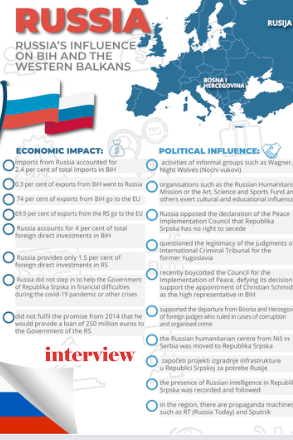
(Interview)



